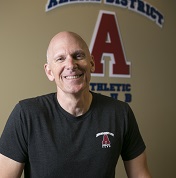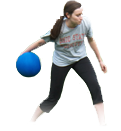
5 Signs You Need to Eat More Carbs
Today’s diet trends, particularly keto, have led to skepticism about carbs — and cutting back on everything from bread to bananas. But is swapping your morning oatmeal and afternoon apple for eggs and avocado really the best way to support your overall health and maintain a healthy weight?
The number of carbs you need to thrive really depends on your individual needs, goals and lifestyle, says dietitian and personal trainer Jenna Appel. That said, if your body needs more carbs, you’d better believe it’ll let you know.
WHY WE NEED CARBS
First of all, carbs are not innately good or bad.
“Carbs are our primary fuel source and provide us with the energy we need just to do daily activities and live,” says Appel. “They’re also our brain’s primary fuel source, and without ample carbohydrates, it can’t function optimally.” (According to Appel, the brain relies on carbs for about 90% of its energy.)
When we eat carbs, our body breaks them down into sugar, which can be converted into energy straight from our bloodstream or stored as glycogen in our muscles and liver to convert into energy later.
To keep your body well-fueled, the Dietary Guidelines for Americans recommends getting between 45–65% of your daily calories from carbohydrates. (If you eat 2,000 calories per day, that’s 225–320 grams of carbohydrates per day.)
SIGNS YOUR BODY NEEDS MORE CARBS
Fall short on your body’s go-to fuel source and you’re pretty much guaranteed to feel the effects in a number of ways — from the not-so-surprising to the completely unexpected.
1 FATIGUE AND BRAIN FOG
The first (and perhaps most obvious) indicator your body isn’t getting the carbs it needs to function its best? You feel physically and mentally exhausted, says Appel.
In addition to feeling sluggish and even sleepy throughout the day, many people experience headaches and trouble focusing when they don’t consume ample carbs, Appel adds.
2 MOODINESS
Along with difficulty focusing, you may also experience changes in mood — especially irritability — when you fall short of your body’s carbohydrate needs, suggests Appel.
In addition to being the brain’s primary fuel source, carbohydrates also increase the body’s production of serotonin, the hormone that helps balance our mood. (It’s often associated with a sense of happiness and well-being.)
“When I see clients who are experiencing changes in mood, I always explain the importance of carbohydrates,” Appel says.
3 CRUMMY WORKOUTS
If eating too few carbs leaves you struggling to get through your average workday, you know it must impact how you feel during exercise, too.
While insufficient carbs may not be so problematic for lower-intensity workouts (like yoga) that your body can better use oxygen and fat to power, it can pretty much destroy your performance in higher-intensity training (like CrossFit), Appel says. Why? Higher-intensity exercise depends on glucose from the carbs in our bloodstream or stored in our muscles or liver for fuel since it cannot produce ample energy quick enough with just oxygen or fat.
Case in point: The Journal of Sports Medicine and Physical Fitness found low-carb, ketogenic diets significantly impacted men’s and women’s performance in high-intensity exercise.
4 BAD BREATH
Unexpected but very real: Falling short on carbohydrates can make your breath stink.
“When you eat low-carb, your body turns to fat for fuel,” explains Appel. “In the process of breaking down that fat for fuel, your body produces chemicals called ketones, which are released in the breath and have a foul odor.” (Ever heard the term “keto breath?” This is where that comes from.)
If you notice particularly smelly breath (many low-carb dieters report an ammonia- or acetone-like smell) but are on-top of your flossing game, your diet may be to blame.
5 DIGESTION ISSUES
One major downside of missing the carbs your body needs for fuel: You also miss out on the fiber that comes with them.
“When we cut back on foods like fruits, vegetables and whole grains, we eliminate a lot of the fiber in our diet,” says Appel. Without fiber, which adds bulk to our stool, we end up with constipation and irregular time spent on the toilet.
Considering most Americans fall short on fiber as it is, slashing carbs practically guarantees trouble.
HOW TO INCREASE YOUR CARB INTAKE HEALTHFULLY
If any of these issues sound familiar, Appel recommends focusing on eating ample carbohydrates and monitoring improvements in how you feel.
To do so, either track your meals for a few days to make sure 45–65% of your calories are coming from carbohydrates. Or, “just make sure a quarter of your plate at each meal consists of healthy carbohydrates,” Appel says.
What qualifies as “healthy” carbs? Any whole-food source, like whole grains (Think: oats or brown rice); legumes (Think: beans or lentils); fruit (Think: berries or apple) or starchy vegetables (like potatoes or squash).
If you’re concerned about how increasing carb intake might affect your waistline, know this: “The fiber that comes in these natural whole grains helps keep you fuller for longer, so you will be more satiated between meals, which supports weight loss in the long run,” Appel says.
Better focus, more energy and greater weight-loss success? Sounds like a win-win-win, doesn’t it?




